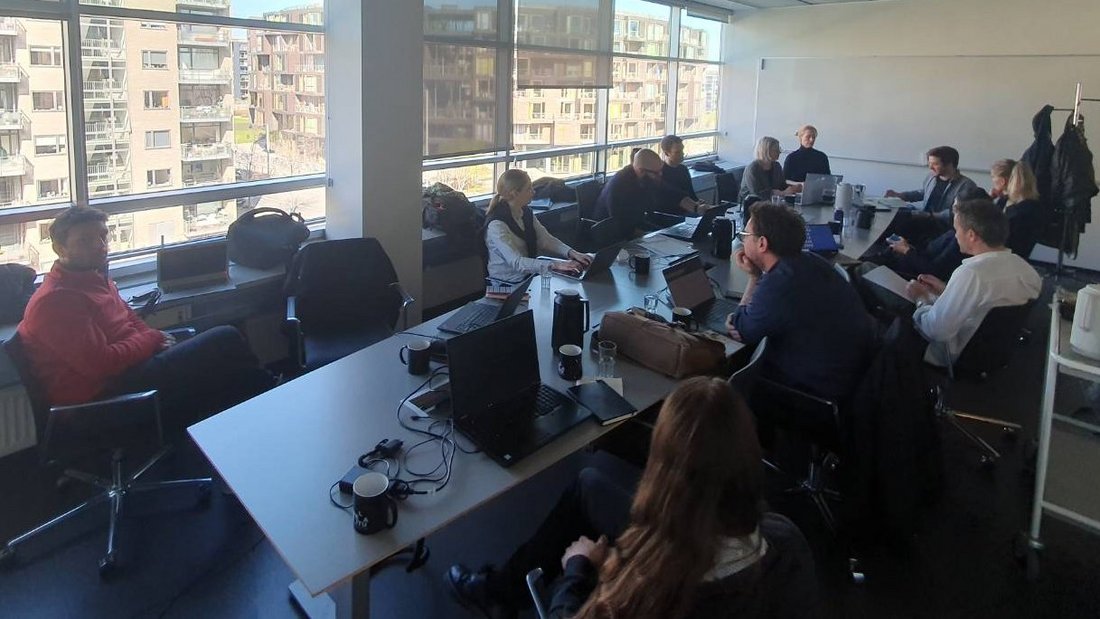International Workshop on Data Integration
CUPP-hosted International Workshop at the IT University of Copenhagen, on April 27-28, sponsored by NordForsk.
Title: "The Role of Data Integration and Analysis Platforms in Contemporary Society."
With the workshop we started a focused conversation on the architectures and epistemic ramifications of data integration and analysis platforms, defining relevant terms and discussing their commonalities and differences with other digital platforms (Facebook, Airbnb, Uber etc.):
- What are the promises of companies offering data integration and analysis platforms?
- What are the reasons organizations are interested in using these platforms?
- What kind of transformations go along with the implementation of data analysis platforms?
- What regulatory difficulties arise when such platforms are introduced and how are (supra-)national legal frameworks equipped to control the use of data analysis platforms and/or re-enacted to accommodate the implementation of such platforms?
- What types of logics, biases and values are inscribed in data analysis platforms?
- How have increased efficiency, cost-effectiveness, objectivity, and precision been embedded in data analysis platforms?
- What does prediction and surveillance mean in the context of such platforms?
Context
In recent years, digital platforms became ever more important tools in contemporary society. Be it social media platforms like Facebook, app platforms like Google Play, gig economy platforms like Airbnb, Uber, or Delivery Hero – digital platforms play a crucial role in the day-to-day activities of many people. Whereas the role of these platforms has already extensively discussed (e.g., Gillespie, 2010; van Dijck et al., 2018; Gorwa, 2019; van Doorn & Badger, 2020), another increasingly important type of digital platform has not been considered systematically enough: data integration and analysis platforms.
Data analysis platforms, which most prominent examples originate from US company Palantir Technologies, promise the desilosation of databases by connecting numerous and heterogenous data with each other, enabling its users to find associations in these data in no time. Being able to access all available data in a convenient way, being able to analyse these data to gain new insights is an increasingly important task for several organizations of different types in modern society.
Data analysis platforms promise to fill this void by structuring and processing available data to facilitate knowledge production, which falls on fertile ground especially in the security sector, where platforms like Palantir’s Gotham are becoming increasingly relevant tools in policing (e.g., Ferguson, 2017; Egbert, 2019; Brayne, 2021). However, also in non-security realms, data analysis platforms represent an attractive tool for making sense of data in a short time, which was especially observable in the context of the COVID-19-pandemic (Taylor et al., 2020), where for example Palantir offered to provide their data analysis software to hospitals, local health authorities and national governments (Howden et al., 2021; Matak, 2021) or in humanitarian work where Palantir's software was used by the United Nations World Food Program (Madianou, 2019). Although being one if its most prominent examples, this workshop is not limited to cases related to Palantir but focuses on any digital data integration and analysis platforms.
Many thanks to Simon Egbert and Helene Oppen Ingebrigtsen Gundhus for making the workshop happen.
Special thanks to NordForsk for sponsoring us.
Shout out to all amazing researchers who presented, discussed and provided feedback to each other's contribution. Special Issue next...!
David Wyatt, Amelia Acker, Andrew Iliadis, Mikkel Flyverbom, Anu Masso, Aaron Martin, Björn Karlsson, Giorgos Mattes, Vasileios Vlassis, Lena Ulbricht, Christin Wathne, Nanna Bonde Thylstrup.


